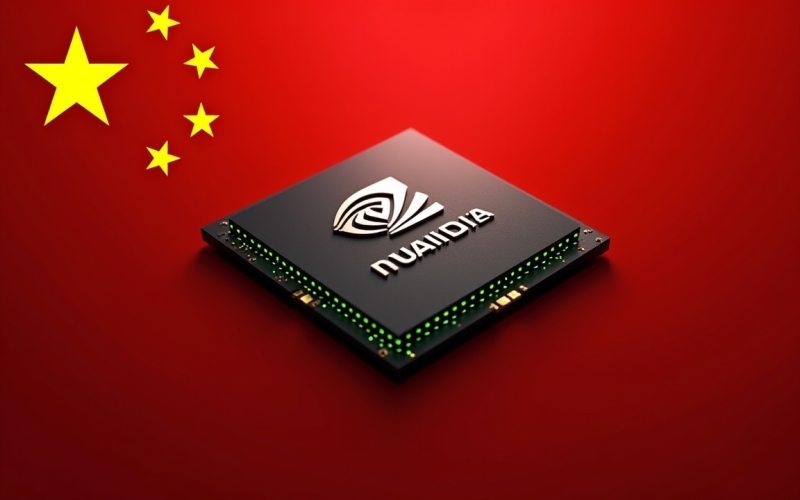US chip giant Nvidia is facing a fresh round of antitrust scrutiny in China, deepening its troubles in a critical market as Washington and Beijing spar over technology access.
On Monday, the State Administration for Market Regulation (SAMR) said preliminary investigations showed Nvidia had violated China’s anti-monopoly law.
The regulator suggested the company may have breached commitments it made in 2020 when China approved its $7 billion acquisition of Israeli chip designer Mellanox Technologies.
SAMR did not provide details of the alleged violations or outline possible penalties but confirmed that it would continue its probe.
The announcement weighed on investor sentiment, with Nvidia shares falling 2.5% in premarket trading in New York.
Commitments under the Mellanox deal come into focus
Nvidia’s 2020 acquisition of Mellanox was cleared by Chinese regulators on the condition that the US firm guarantee supplies of its chips to the Chinese market.
That approval came before Washington imposed sweeping restrictions on the sale of advanced semiconductors to China.
According to SAMR, the company may have failed to uphold aspects of those commitments.
The regulator opened a formal investigation into Nvidia in December, and Monday’s update suggests the probe is advancing toward a more formal stage.
The scrutiny reflects growing sensitivity in Beijing about reliance on US technology.
While Mellanox’s networking products underpin many global data centres, including in China, Washington’s export bans have limited how much of Nvidia’s cutting-edge AI hardware can reach Chinese customers.
Trade talks clouded by chip tensions
The announcement coincided with the latest round of trade negotiations between senior US and Chinese officials in Madrid, which began Sunday.
The timing underscored how technology remains a flashpoint in the broader economic relationship between the two powers.
Over the weekend, Beijing launched two separate probes into semiconductors: an anti-dumping investigation into some chips imported from the US and a review of American export restrictions that Chinese officials say discriminate against its domestic industry.
Analysts said the antitrust move against Nvidia may be part of a broader strategy to counter US measures limiting China’s access to advanced processors.
“Chips remain at the centre of the geopolitical rivalry, and Beijing is signalling it will use regulatory tools as leverage,” said one Asia-based trade analyst.
Nvidia’s fraught position in China
Nvidia has had an uneasy relationship with the Chinese market in recent years, navigating both US restrictions and Beijing’s regulatory demands.
Earlier this year, Chinese authorities blocked shipments of its H20 chip, a product designed specifically to comply with US export controls.
Last month, the company struck an agreement with Washington to resume some sales of semiconductors to China, in exchange for handing over 15% of related revenue to the US government.
Chief executive Jensen Huang has warned that barring US chipmakers from China risks ceding the world’s largest AI market to local rivals such as Huawei.
He estimates the Chinese AI market could reach $50 billion within three years.
Chinese regulators have also pressed companies, including Tencent and ByteDance, to explain purchases of the H20 chip, raising concerns about data security.
Nvidia itself was summoned by China’s cyberspace regulator last month to answer questions on whether its products contained backdoor risks.
Outlook for Nvidia
The latest probe underscores the precarious position of Nvidia, the world’s leading AI chip supplier, as it sits at the heart of the US-China technology standoff.
The company’s meteoric growth has made it a target for both Washington’s export curbs and Beijing’s regulatory pressure.
While 60 out of 66 brokerages still rate the stock a “buy” or higher, with a median price target of $210, Nvidia faces mounting uncertainty in one of its most important overseas markets.
As trade talks continue in Madrid, the scope of Nvidia’s ability to sell into China will remain a central test of how far the two governments are prepared to push their rivalry in technology.
The post China’s SAMR says Nvidia violated anti-monopoly law; shares fall appeared first on Invezz


